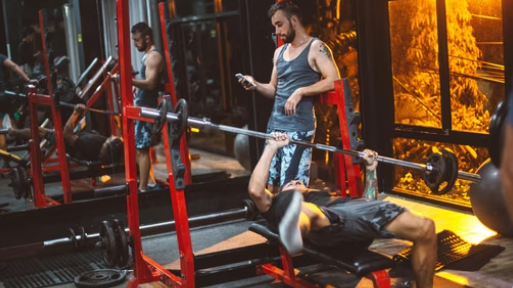As the fitness industry continues to boom, a surprising and concerning trend has emerged: a significant increase in the incidence of inguinal hernias among men aged 25 to 35. Health professionals are raising the alarm as more gym-goers find themselves sidelined by this hidden risk, often caused by intense physical exertion and improper weightlifting techniques.
Inguinal hernias, a condition where a portion of the intestine protrudes through a weak spot in the abdominal muscles, are typically associated with ageing or strenuous physical activity. However, recent data suggest that younger men, particularly those engaged in high-intensity workouts or heavy weightlifting, are increasingly at risk.
Dr Angela Martinez, a leading sports medicine specialist, explains, “We’ve seen a noticeable uptick in young men presenting with symptoms of inguinal hernias, many of whom are avid gym-goers. The condition often develops when individuals lift weights that are too heavy or use incorrect form, leading to excessive strain on the abdominal area.”
The rise in gym-related inguinal hernias can be attributed to the growing popularity of extreme fitness routines that emphasize heavy lifting, such as bodybuilding and CrossFit. While these workouts can yield impressive results, they also pose a heightened risk for injuries, particularly for those who may not have built up the necessary core strength or who push themselves beyond their physical limits.
Symptoms of an inguinal hernia can include a noticeable bulge in the groin area, pain or discomfort, especially when bending over or lifting, and a feeling of weakness or pressure in the groin. If left untreated, an inguinal hernia can lead to serious complications, including intestinal obstruction or strangulation, which may require emergency surgery.
Fitness trainers and health experts are urging gym-goers to prioritize proper technique and to listen to their bodies to avoid such injuries. “It’s crucial to start with manageable weights and gradually increase the load as your strength improves,” advises personal trainer Mark Anderson. “Also, incorporating core strengthening exercises into your routine can help support the abdominal muscles and reduce the risk of hernias.”
Inguinal hernias can be treated effectively with surgery, but prevention is key. Men within the vulnerable age group are encouraged to consult with a healthcare professional if they experience any symptoms and to approach their fitness goals with a focus on safety and long-term health.








 India
India












